Alex Kidd in Miracle World DX is the latest in a line of lesser-known retro platformers from the early days of gaming getting the remaster treatment. The original Alex Kidd in Miracle World was a decent hit for the Sega Master System, but was mostly overshadowed by the likes of Super Mario Bros., especially in the United States. Let’s just say that that every kid I knew had an Nintendo Entertainment System and only one kid on the few surrounding blocks that I lived on had Sega Master System that belonged to his older brother. I am noting this because I have zero nostalgia for Alex Kidd. I didn’t grow up with him and only really remember him as the short-lived mascot for the Sega Genesis console.
What I can say is that Alex Kidd in Miracle World has not aged all that well over the years for a number of weird reasons. What does still hold up is the silly dialogue used to tell the story of Prince Alex who takes it upon himself to save the city of Radaxian which has fallen under the control of Janken the Great. The fun characters hold up and its light tone and feel are still welcome. There are lots of cutscenes that expand on the story, something incredibly rare for the time. I’m not sure if Alex Kidd in Miracle World was the first game to do this to this extent, but it certainly is a very early example of it. New dialogue is also in play as part of quality of life improvements and to help the overall story make more sense.
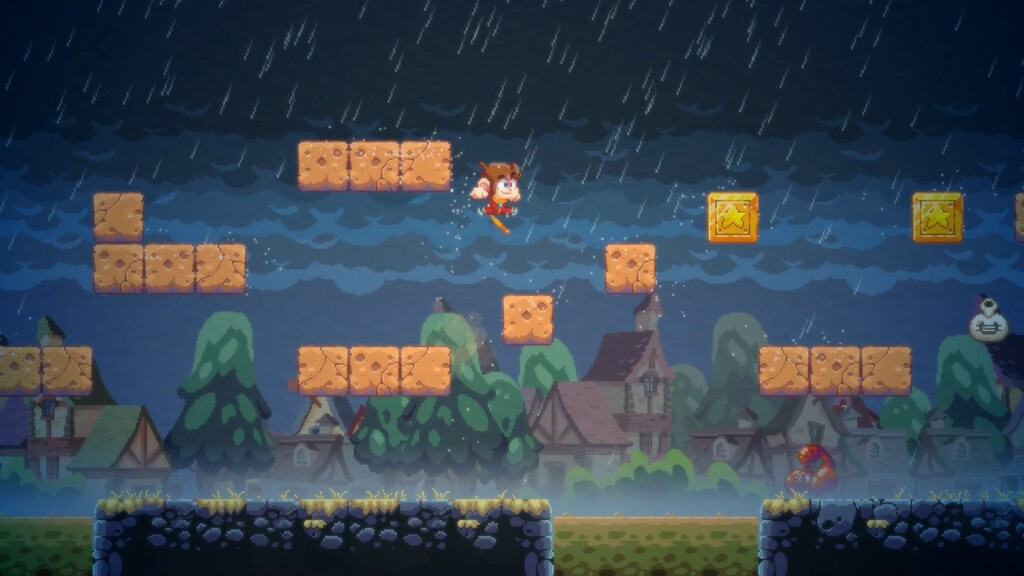
Essentially. Alex Kidd in Miracle World DX takes that original 8-Bit title and throws a new skin over it with some truly spectacular art, effects, and animations. Alex looks amazing and his new animations are silky smooth. This really does look like a brand new game on all fronts. Enemies and environments get a huge facelift, the most noticeable being the backgrounds. In the original Master System outing all the backgrounds consisted of a solid color. They are all now beautifully painted and make each area of the world look alive and very lived in. You can also pick whatever food item you want that was originally based on the games release region. The game is downright gorgeous on every level, especially the music.
The game takes the original tracks and turns them into these beautiful arrangements with a deeply Spanish flare. I often found myself flipping back between the classic mode and the new remaster just to see how the composer built off the original tracks. You can hear the melodies expanded on and it’s a real treat to the ears. This is the kind of music that is so good I’d love to own the soundtrack and pump it through my sound system at home on a nice afternoon in. Usually with these remasters you get the same audio just bumped up in quality. It’s rare you get an entire OST redone and made much grander.
There is a whole lot to love on the visual and audio front, but it’s the gameplay where any game lives and dies. That said, Alex Kidd in Miracle World DX has one fatal flaw in that its still Alex Kidd in Miracle World. Sure, there is some nostalgia there for some people as this game was like Super Mario Bros. was to most NES kids, but Alex Kidd in Miracle World just wasn’t a great platformer to begin with and has aged far less gracefully than its compatriots. Alex dies in a single hit, which wasn’t out of the ordinary at the time, but the controls really help kill a lot of the fun to be had making a short experience a lot longer. It’s a hard game not because its the Dark Souls of platformers, but because the controls are kind finicky.
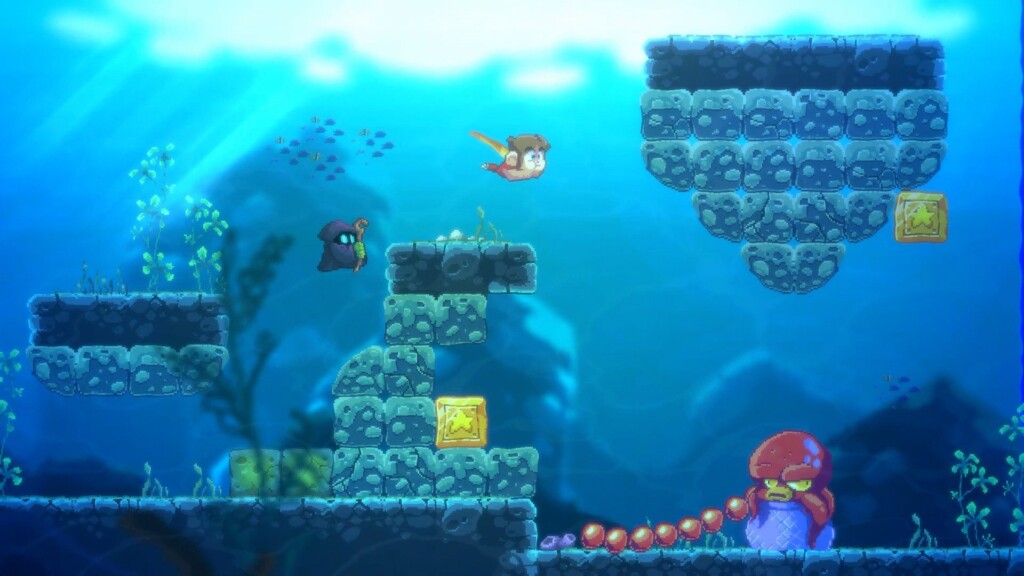
Alex punches to attack enemies but his punch seems to reach just past his nose. This means you’ll have to be almost nose to nose in order to kill anything. This is problematic as some enemies, especially the flying ones, have patterns that place them just out of reach without jumping at them. At times it feels like I’m flipping a coin to see if I land a hit or not. It’s often better to avoid enemies when you can as combat isn’t really fun. There are a number of powerups you can find/buy that help; some allow you to shoot, others provide a shield, and others even let you use vehicles. Anytime you have access to these the game becomes a lot more fun in the process, even more than the original as you can bank two and swap between them without pausing the game.
At the start of most every new area you can purchase these powerups if you have enough cash. You can find bags of money throughout each level as well as in marked blocks that you can smash. It’s a basic idea, but one that comes at a cost as some blocks can hurt you in various ways. One block might freeze you in place while any given powerup box might unleash a little wizard that will endlessly chase you until it kills you. These are always a pain as you can only ditch them by moving screens, something not vert easy or even always possible.
And then there are the games sub-bosses that have and will turn people away from completing the game. It’s the one thing people seem to remember from Alex Kidd in Miracle World most and one that is still a problem today. Janken the Great and his sub-boss goons are people with giant hands for heads. It’s very weird and very memorable, even in the already strange and cartoonish world. The issue is that when you beat a stage you’ll often fight a hand sub-boss, but instead to fighting them you’ll be asked to play a game of rock, paper, scissors. It’s best of three and seems entirely random. Just imagine busting your ass on a a tough stage, you’re on your last life, and you lose an arbitrary game game of rock, paper, scissors and be sent back to the beginning. It sucked then and it sucks now unless you know the trick to it as its not really random.
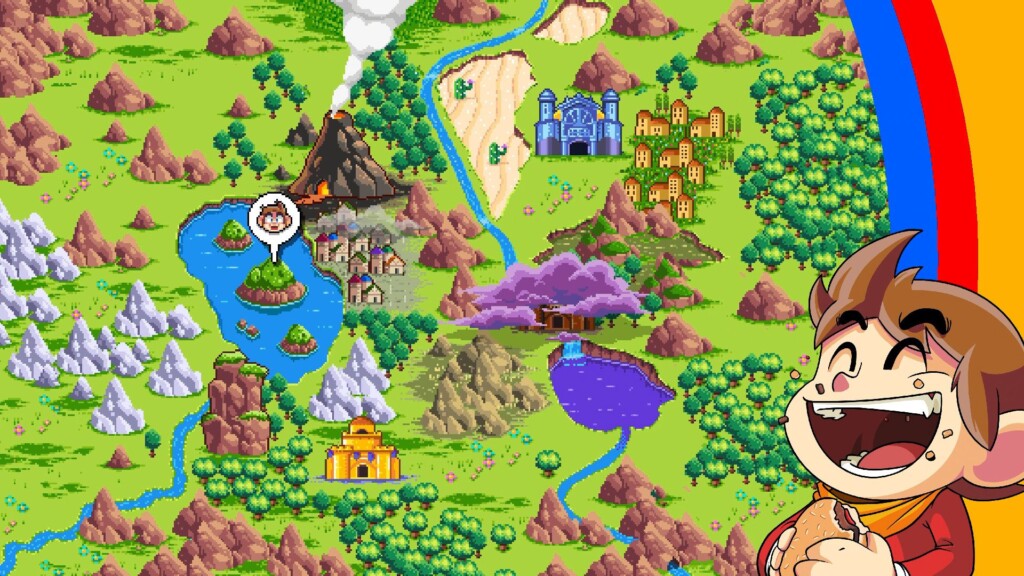
The team behind Alex Kidd in Miracle World DX seem to realize just how strangely difficult it is as there is an option to give you unlimited lives, something that is almost necessary to even beat the game. As for movement, well, Alex feels very floaty and slippery, but only just so. Every jump feels like a gamble as you never quite know just where Alex will land. I never got to grips with the jump as there is some drift that I could never counter. I could jump to a block a dozen times and end up all over it with not consistency, but maybe this is due to the poor D-Pad on the Switch. And this is made worse as there are a number of sections that require pinpoint jumps to progress. On top of that are the underwater stages that are mostly fine but sometimes throw TMNT NES-style water hazards that are one hit kills. I nearly gave up on the game in one castle section that had spikes above and below me and no way to keep Alex floating in place. A game for kids requiring this sort of platforming precision, or knowing certain tricks that aren;t explained, is pretty wild looking back.
And I need to touch on those gorgeous backgrounds again. While they are beautiful and I’d be happy to hang art of them on my walls, they hurt the less than stellar controls. In original mode they are solid colors making everything easy to see. Platforms and enemies are very clear and bullets coming at you are easily visible. In the remaster mode everything tends to fade into itself, meaning you often can’t see just what is going on and what is shooting you from where. On top of this is the fact that the remaster sometimes adds foreground object that completely obscure your vision leading to needless deaths in an already difficult game.
Finally, I need to address just how Alex Kidd in Miracle World DX handles switching between the classic and remaster modes. You can switch on the fly, much in the same way you can in something like Halo 1 and 2 in the Master Chief Collection, only unlike those games the transition isn’t instant. There is a screen wipe animation that plays whenever you hit the switch button, which isn’t bad in and of itself, but the game does not pause while this transition happens. That means you are taking a second to wipe and switch but the game underneath is still playing out normally. This makes changing between the two modes a bad idea as you are putting yourself in danger. Chances are you’ll play a stage in the classic mode or in the remaster, but you probably won’t be hot swapping between the two.
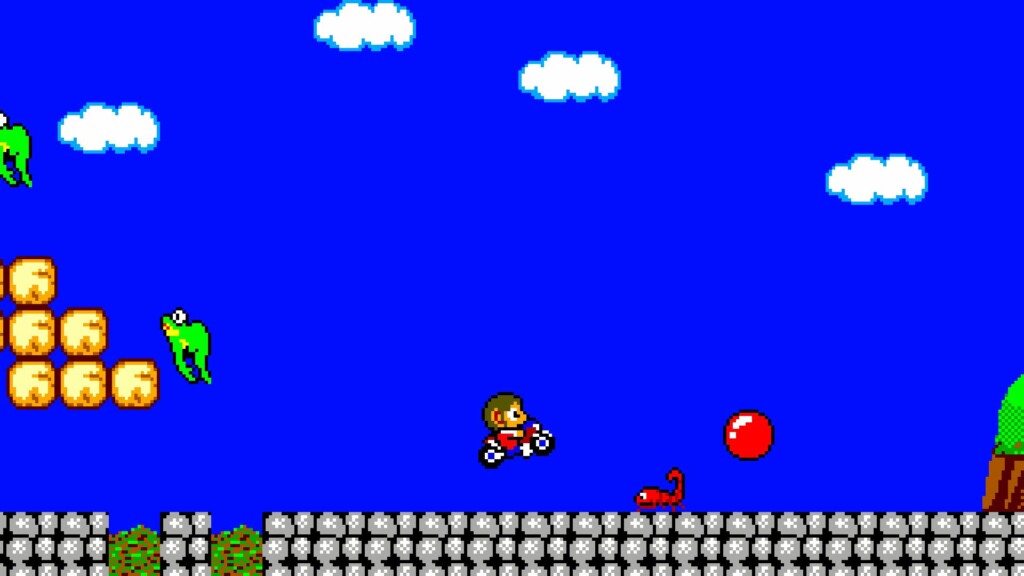
Alex Kidd in Miracle World DX is a great looking and sounding remaster with a number of small quality of life improvements that is hindered by its slippery gameplay that simply hasn’t aged very well. In the late 1980s, the game did a lot of amazing things at a time where Super Mario Bros. 2 (The Lost Levels) simply made the original SMB harder. It also didn’t help that Alex Kidd in Miracle World released the same year as The Legend of Zelda and released smack in the middle of Super Mario Bros. 2 and Castlevania. And while America never saw SMB2 in its original form, both Zelda and Castlevania massively overshadowed this little Master System gem. And, yet, I can’t help but really like the overall experience, especially the added features and collectables. You can even play a recreation of the original game as it was intended with a neat Master System frame.
What’s interesting for me is that I love and adore the look and sound in Alex Kidd in Miracle World DX, I just never quite got to grips with its slippery controls. Yet, Wonder Boy III: The Dragon’s Trap, another Master System classic that got the same redrawn remaster treatment is a game that I adored when it released. It even managed to be included in my top games of the year. Both games are gorgeous and sound great, but in the end it just comes down to how well each play, and Alex Kidd in Miracle World DX, while a true classic, just doesn’t play all that well after all these years. That said the game is worth the small investment for fans of the series and grew up with it. New players who love the simplicity and tightness of classic platformers might want to skip this one at least until its on sale.
Pros:
+ Great Remastered Art & Animation
+ Incredible Soundtrack
+ Small Quality Of Life Improvements
+ Faithful To Original
Cons:
– Slippery Controls
– Annoying Sub-Bosses
– Difficulty Spikes
– Visual Swapping Mode Delay
Final Score:
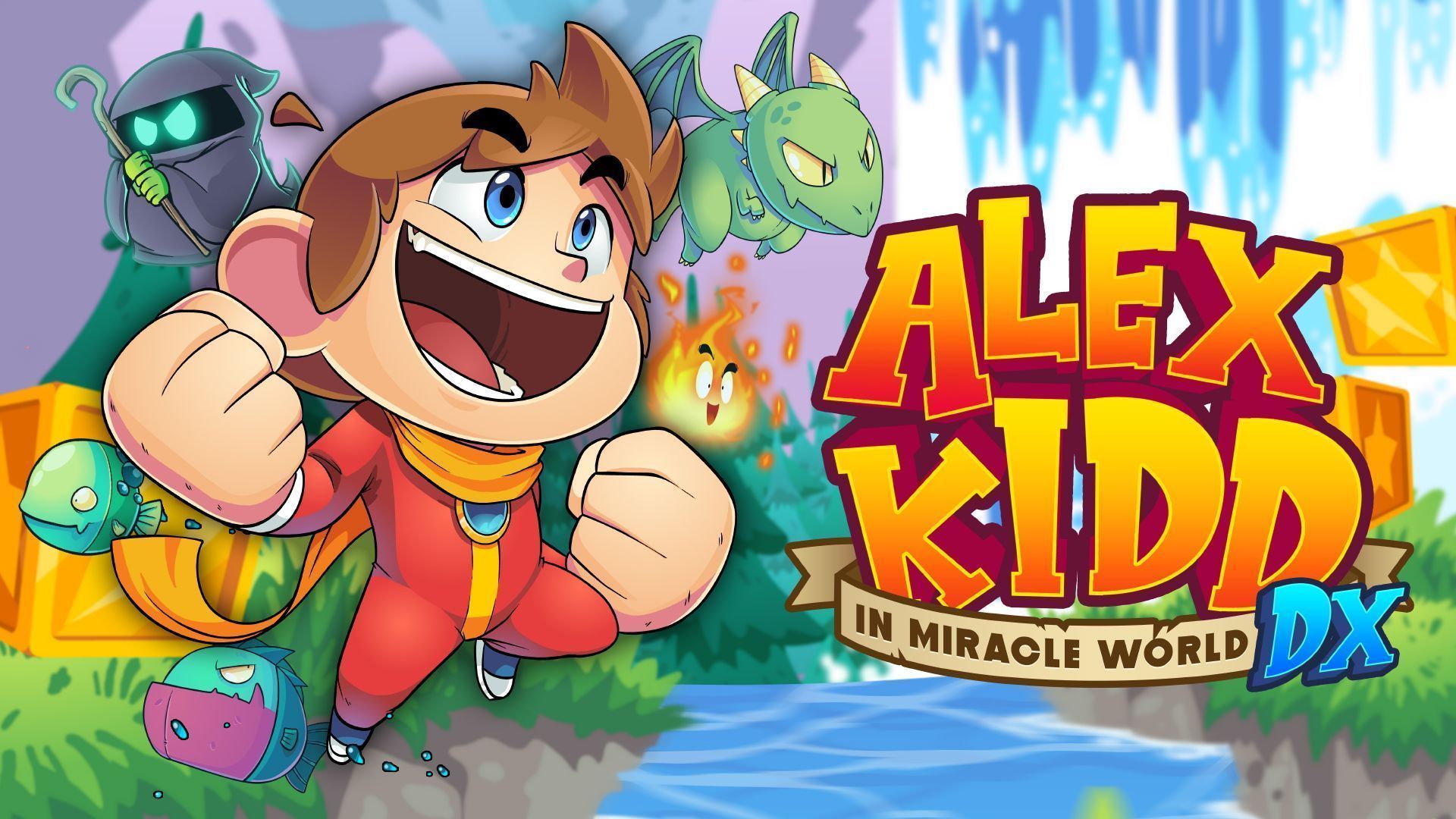
Genre: Platformer
Developer: Jankenteam
Publisher: Merge Games
Release: June 22, 2021
*A Review Key Was Provided By The Publisher*
